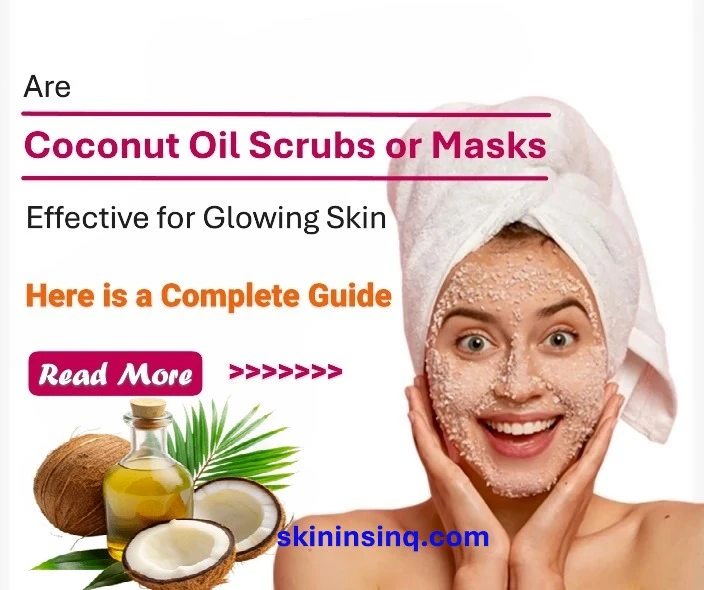Are Coconut Oil Scrubs or Masks Effective for Glowing Skin? Exploring Their Benefits and How to Use Them Safely
Are Coconut Oil Scrubs or Masks Effective for Glowing Skin? Exploring Their Benefits and How to Use Them Safely
Coconut oil has long been a staple in natural skincare due to its moisturizing, antibacterial, and anti-inflammatory properties. When used in scrubs or masks, it can contribute significantly to achieving healthy, glowing skin. However, its effectiveness depends on how it's used, your skin type, and the ingredients it’s combined with. Here's a closer look at how coconut oil scrubs and masks can help brighten your complexion and what precautions you should take.
Benefits of Coconut Oil for Glowing Skin
Coconut oil is rich in medium-chain fatty acids like lauric acid, which offers antimicrobial benefits that may help reduce acne-causing bacteria. Its emollient properties deeply hydrate the skin, reducing dryness and flakiness that often dull the complexion. It also contains antioxidants, such as vitamin E and polyphenols, which combat free radicals and protect the skin from premature aging.
When used as part of a scrub or mask, coconut oil can:
-
Moisturize deeply: Preventing dryness and leaving skin soft and supple.
-
Smooth texture: By combining with exfoliants like sugar or coffee grounds, it can help slough off dead skin cells, allowing fresh skin to surface.
-
Promote radiance: Hydrated and exfoliated skin naturally reflects more light, giving it a glowing appearance.
Coconut Oil Scrubs
DIY coconut oil scrubs typically mix coconut oil with natural exfoliants such as sugar, salt, or oatmeal. The gritty texture helps remove dead skin cells, while the oil hydrates.
How to use:
-
Mix 1 tablespoon of coconut oil with 1 tablespoon of fine sugar.
-
Gently massage the mixture onto damp skin in circular motions.
-
Rinse off with lukewarm water and pat dry.
Use once or twice a week for best results. Over-exfoliation can irritate the skin and cause breakouts, especially if you have sensitive or acne-prone skin.
Coconut Oil Masks
Masks made with coconut oil are ideal for dry or dull skin. They can be combined with honey (a natural humectant), turmeric (anti-inflammatory), or aloe vera (soothing).
Example mask recipe:
-
Mix 1 teaspoon of coconut oil with 1 teaspoon of raw honey.
-
Apply a thin layer to your face.
-
Leave it on for 10–15 minutes, then rinse off with warm water.
This type of mask can be used 1–2 times a week to help restore hydration and promote a healthy glow.
Safety Considerations
While coconut oil is beneficial for many, it may not suit everyone—especially those with oily or acne-prone skin. Its comedogenic rating is relatively high, meaning it can clog pores in some individuals.
Tips for safe use:
-
Always patch test before full application.
-
Use organic, cold-pressed, unrefined coconut oil for best results.
-
Avoid using scrubs on broken or irritated skin.
Final Thoughts
Coconut oil scrubs and masks can be effective tools for achieving glowing skin when used correctly. Their natural moisturizing and exfoliating benefits can enhance skin texture, hydration, and radiance. However, always consider your skin type and sensitivities before incorporating coconut oil into your routine. With mindful use, this natural remedy can help you maintain a bright and healthy complexion.

Related Blog
What Causes Oily Skin and Can It Be Managed Naturally? Exploring Root Causes and Gentle Solutions
Aug 2, 2025 by Admin
General
What Are the Signs That You Have Sensitive Skin? Key Symptoms to Help You Identify This Delicate Skin Type
Aug 1, 2025 by Admin
General